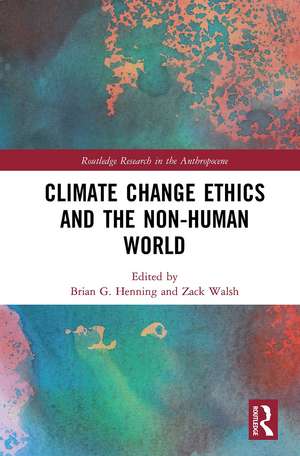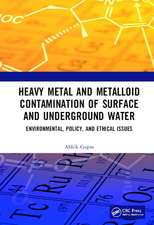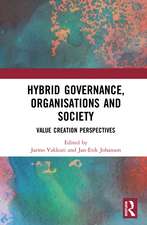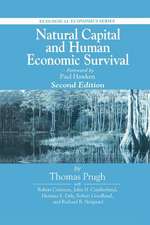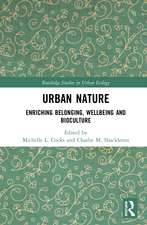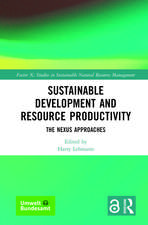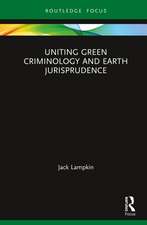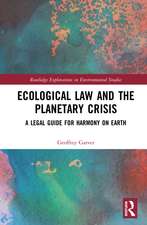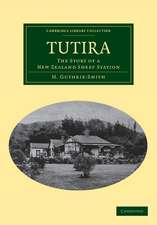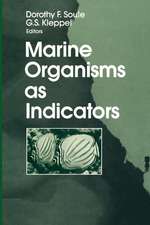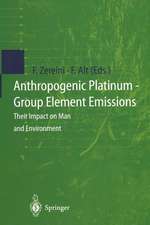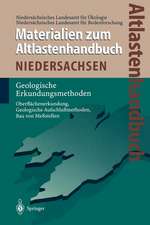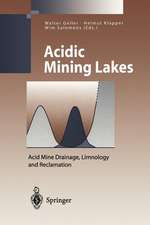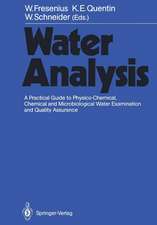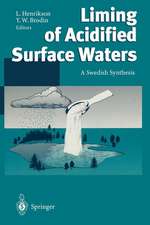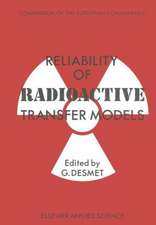Climate Change Ethics and the Non-Human World: Routledge Research in the Anthropocene
Editat de Brian G. Henning, Zack Walshen Limba Engleză Paperback – 13 dec 2021
The complexity of life in an age of rapid climate change demands the development of moral frameworks that recognize and respect the dignity and agency of both human and non-human organisms. Despite decades of careful work in non-anthropocentric approaches to environmental ethics, recent anthologies on climate ethics have largely omitted non-anthropocentric approaches. This multidisciplinary volume of international scholars tackles this lacuna by presenting novel work on non-anthropocentric approaches to climate ethics. Written in an accessible style, the text incorporates sentiocentric, biocentric, and ecocentric perspectives on climate change.
With diverse perspectives from both leading and emerging scholars of environmental ethics, geography, religious studies, conservation ecology, and environmental studies, this book will offer a valuable reading for students and scholars of these fields.
| Toate formatele și edițiile | Preț | Express |
|---|---|---|
| Paperback (1) | 384.31 lei 6-8 săpt. | |
| Taylor & Francis – 13 dec 2021 | 384.31 lei 6-8 săpt. | |
| Hardback (1) | 764.62 lei 6-8 săpt. | |
| Taylor & Francis – 28 feb 2020 | 764.62 lei 6-8 săpt. |
Preț: 384.31 lei
Nou
Puncte Express: 576
Preț estimativ în valută:
73.55€ • 76.50$ • 60.72£
73.55€ • 76.50$ • 60.72£
Carte tipărită la comandă
Livrare economică 15-29 aprilie
Preluare comenzi: 021 569.72.76
Specificații
ISBN-13: 9781032238296
ISBN-10: 1032238291
Pagini: 226
Ilustrații: 1 Illustrations, black and white
Dimensiuni: 156 x 234 x 12 mm
Greutate: 0.33 kg
Ediția:1
Editura: Taylor & Francis
Colecția Routledge
Seria Routledge Research in the Anthropocene
Locul publicării:Oxford, United Kingdom
ISBN-10: 1032238291
Pagini: 226
Ilustrații: 1 Illustrations, black and white
Dimensiuni: 156 x 234 x 12 mm
Greutate: 0.33 kg
Ediția:1
Editura: Taylor & Francis
Colecția Routledge
Seria Routledge Research in the Anthropocene
Locul publicării:Oxford, United Kingdom
Public țintă
Postgraduate and UndergraduateCuprins
Foreword Introduction 1. Climate Change and the Loss of Nonhuman Welfare 2. Anthropocentrism and the Anthropocene: Restoration and Geoengineering as Negative Paradigms of Epistemological Domination 3. Climate Ethics Bridging Animal Ethics to Overcome Climate Inaction: An Approach from Strategic Visual Communication 4. Suffering, Sentientism, and Sustainability: An Analysis of a Non-Anthropocentric Moral Framework for Climate Ethics 5. Biocentrism, Climate Change, and the Spatial and Temporal Scope of Ethics 6. Evaluating Climate Change with the Language of the Forms of Life 7. Thinking Through the Anthropocene: Educating for a Planetary Community 8. Conflicting Advice: Resolving Conflicting Moral Recommendations in Climate and Environmental Ethics 9. An Eco-centric Proposal for Setting a Price on Greenhouse Gas Emissions 10. Being Human: An Ecocentric Approach to Climate Ethics 11. Atmospheres of Object-Oriented Ontology 12. Monsters, Metamorphoses, and The Horror of Ethics in the "Pelagioscene" 13. Gut Check: Imagining a Posthuman "Climate" 14. Wonderland Earth in the Anthropocene Epoch
Notă biografică
Brian G. Henning is a professor of philosophy and environmental studies at Gonzaga University. He is founding Co-Chair of the climate action group 350 Spokane. His research includes more than 35 articles and nine books, including Riders in the Storm: Ethics in an Age of Climate Change and the award-winning book The Ethics of Creativity.
Zack Walsh is Research Associate at the Institute for Advanced Sustainability Studies (IASS) in Potsdam, Germany. He co-leads the A Mindset for the Anthropocene (AMA) project, which is a transdisciplinary research project and emerging network of change agents integrating personal and socio-ecological transformations to sustainability.
Zack Walsh is Research Associate at the Institute for Advanced Sustainability Studies (IASS) in Potsdam, Germany. He co-leads the A Mindset for the Anthropocene (AMA) project, which is a transdisciplinary research project and emerging network of change agents integrating personal and socio-ecological transformations to sustainability.
Descriere
This book examines from different perspectives the moral significance of non-human members of the biotic community and their omission from climate ethics literature.
